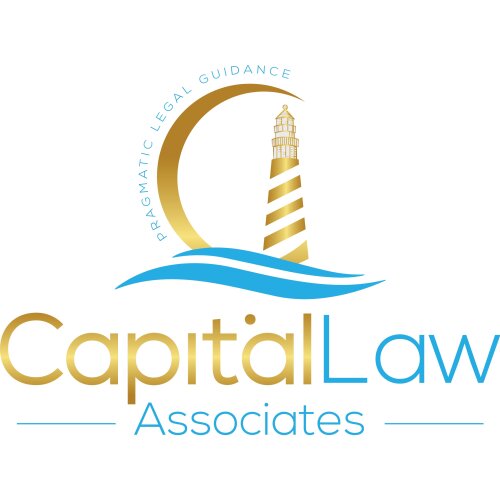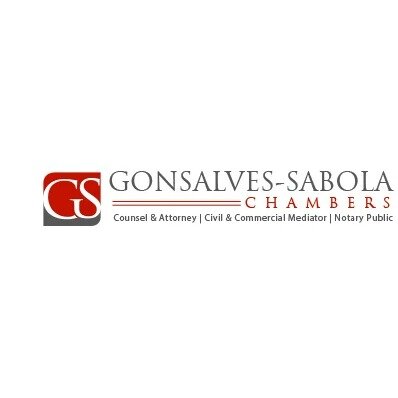Best Sanctions & Export Controls Lawyers in Nassau
Share your needs with us, get contacted by law firms.
Free. Takes 2 min.
List of the best lawyers in Nassau, Bahamas
About Sanctions & Export Controls Law in Nassau, Bahamas
Sanctions and export controls are essential legal mechanisms used to monitor and regulate the movement of goods, technology, and services crossing international borders. In Nassau, Bahamas, these laws are designed to ensure compliance with both domestic policies and international obligations, especially regarding the prevention of financial crimes, terrorism, and the illegal proliferation of controlled goods. The Bahamas, as a member of the international community, is committed to upholding global standards set by the United Nations, the Financial Action Task Force (FATF), and other international bodies. Businesses and individuals operating in or through Nassau must be vigilant about sanctions and export control regulations to avoid severe penalties and reputational harm.
Why You May Need a Lawyer
Legal representation or advice in sanctions and export controls may be necessary for several reasons. Common situations include:
- Engagement in international trade requiring the export or import of goods, technology, or sensitive materials
- Uncertainty regarding whether a person or entity is listed on a restricted or sanctioned list
- Investigations or audits by Bahamian authorities concerning compliance with sanctions or trade restrictions
- Frozen assets or blocked transactions related to sanctioned entities or countries
- Defense against allegations of violating international or domestic export controls
- Conducting due diligence for mergers, acquisitions, or foreign investments involving restricted countries or parties
- Seeking licenses or permissions for otherwise restricted exports
A qualified lawyer can provide critical guidance on compliance, represent you before regulatory bodies, and help reduce legal risks associated with international trade.
Local Laws Overview
In Nassau, Bahamas, the legal framework covering sanctions and export controls includes several statutes and regulations aligned with international obligations. Key aspects include:
- International Obligations and Orders: The government frequently issues orders to implement sanctions mandated by international bodies, particularly the United Nations Security Council.
- The Financial Transactions Reporting Act & Anti-Money Laundering Laws: These include measures to combat financing of terrorism and enforce asset freezes where required.
- The Export Control (Goods, Services and Technology) Act: Governs what goods and technology can be exported from or through The Bahamas, including dual-use items and sensitive materials.
- Central Bank and Regulatory Oversight: Financial institutions are under strict obligations to detect and report suspicious activities and ensure compliance with sanctions.
Failure to comply with sanctions or export control regimes can result in severe civil or criminal penalties, as well as reputational damage for both businesses and individuals.
Frequently Asked Questions
What are economic sanctions in Nassau, Bahamas?
Economic sanctions are restrictions adopted by the Bahamian government, often in alignment with international organizations, to limit or prohibit transactions with specific countries, entities, or individuals as a measure to promote national and international security.
Who enforces sanctions in Nassau?
Sanctions in Nassau are primarily enforced by government agencies such as the Office of the Attorney General and the Ministry of Finance, often working in coordination with the Central Bank and international partners.
What is export control?
Export control refers to legally mandated restrictions on the export or transfer of certain goods, technology, or services, particularly those that could be used for military or harmful purposes, or that are otherwise controlled by international agreements.
Do sanctions only apply to businesses?
No. Sanctions apply to both businesses and individuals. This includes financial institutions, service providers, and anyone engaging in transactions subject to the relevant laws or orders.
How do I know if a person or company is sanctioned?
You can consult official government publications, such as gazetted lists of sanctioned persons or entities, or seek assistance from a legal professional or compliance expert who monitors these lists.
Can I apply for a license to export controlled goods?
In some cases, yes. Certain exports that are ordinarily restricted may be allowed if you obtain the necessary licenses or permissions from the appropriate government authorities.
What are the penalties for violating sanctions or export controls?
Penalties can include large fines, imprisonment, forfeiture of goods, and severe reputational damage. The severity depends on the nature and magnitude of the violation.
Are Bahamian laws on sanctions and export controls in line with international standards?
Yes. The Bahamas is committed to implementing sanctions and export controls in accordance with international best practices and obligations under treaties and agreements.
What should I do if I think I am subject to a sanction or export control investigation?
Seek immediate legal advice. An experienced lawyer can help you understand your rights and obligations, and represent you in communications with authorities.
How do sanctions affect financial institutions in Nassau?
Financial institutions face heightened obligations to detect, report, and freeze assets related to sanctioned entities. Compliance programs and ongoing monitoring are mandatory to avoid regulatory penalties.
Additional Resources
If you require more information or assistance, consider reaching out to the following:
- Office of the Attorney General and Ministry of Legal Affairs: Provides official information and updates on sanctions and export control regulations.
- Central Bank of The Bahamas: Oversees financial compliance and issues guidance on compliance with financial sanctions.
- Bahamas Chamber of Commerce: Can provide resources and information for businesses engaged in international trade.
- Financial Intelligence Unit (FIU): Handles investigations and reporting of suspicious financial activities.
- Private law firms with expertise in international trade and compliance
Next Steps
If you believe you require legal guidance related to sanctions or export controls in Nassau, Bahamas, it is recommended to:
- Consult with a lawyer or law firm specializing in sanctions, export controls, or international trade law.
- Gather and organize relevant documents and details about the matter in question.
- Reach out to government agencies or regulatory bodies if you need clarity on licensure or compliance requirements.
- Stay informed on updates to local laws and international obligations that may affect your activities.
Prompt legal advice can help prevent or mitigate legal exposure, ensure compliance, and protect your interests in the evolving regulatory landscape of sanctions and export controls in Nassau, Bahamas.
Lawzana helps you find the best lawyers and law firms in Nassau through a curated and pre-screened list of qualified legal professionals. Our platform offers rankings and detailed profiles of attorneys and law firms, allowing you to compare based on practice areas, including Sanctions & Export Controls, experience, and client feedback.
Each profile includes a description of the firm's areas of practice, client reviews, team members and partners, year of establishment, spoken languages, office locations, contact information, social media presence, and any published articles or resources. Most firms on our platform speak English and are experienced in both local and international legal matters.
Get a quote from top-rated law firms in Nassau, Bahamas — quickly, securely, and without unnecessary hassle.
Disclaimer:
The information provided on this page is for general informational purposes only and does not constitute legal advice. While we strive to ensure the accuracy and relevance of the content, legal information may change over time, and interpretations of the law can vary. You should always consult with a qualified legal professional for advice specific to your situation.
We disclaim all liability for actions taken or not taken based on the content of this page. If you believe any information is incorrect or outdated, please contact us, and we will review and update it where appropriate.

















